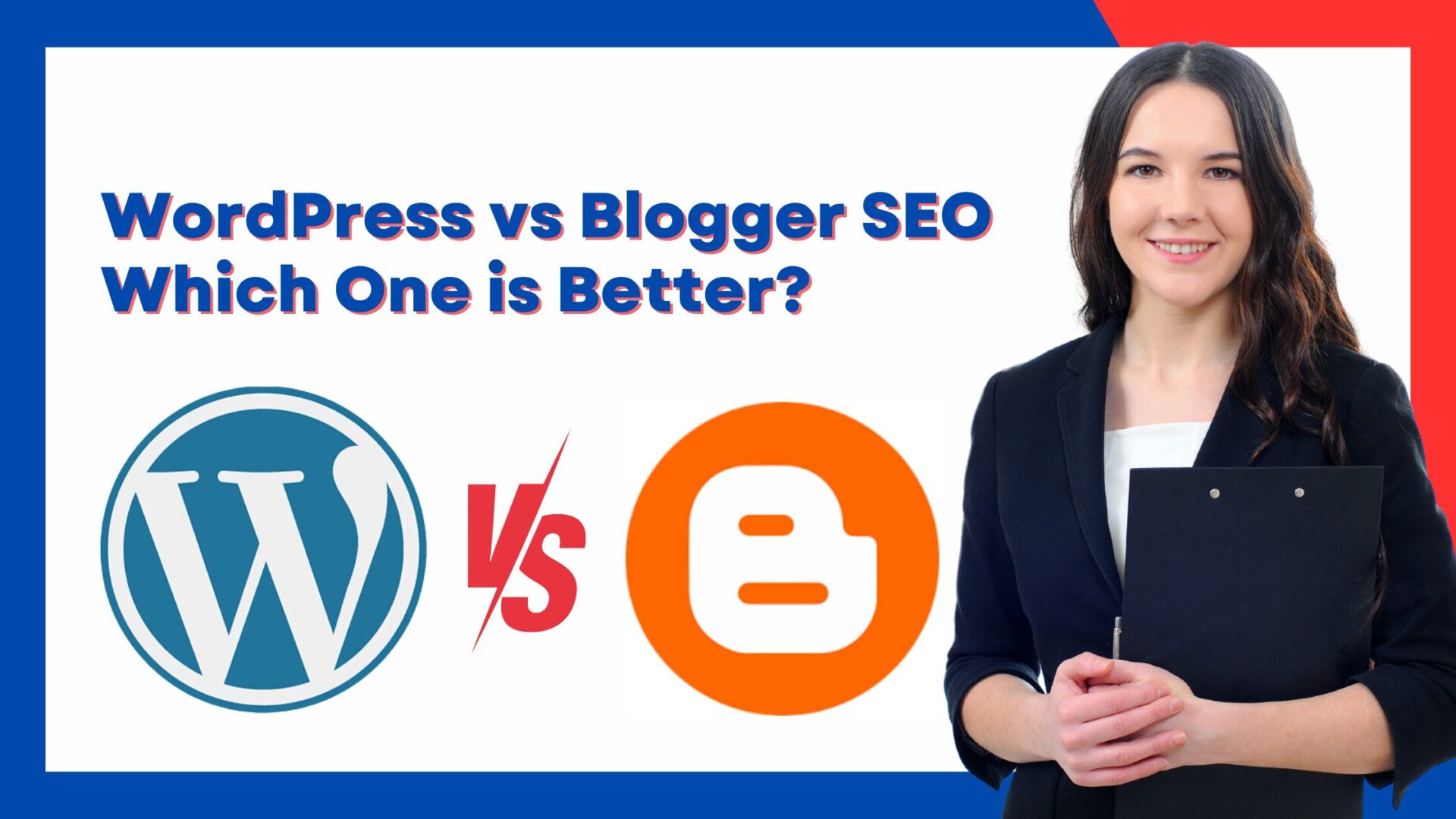
When it comes to blogging, choosing the right platform is crucial for success in search engine optimization (SEO). Blogger vs WordPress both are popular platforms, each with unique features and capabilities.
While Blogger is ideal for beginners with its simplicity, WordPress stands out for advanced customization and SEO tools. We will analyze their SEO capabilities, highlight missing details in existing discussions, and help you decide which platform is better suited to your blogging goals.
Quick View
Key Features Comparison: Blogger vs WordPress SEO
Both Blogger vs WordPress are designed to help users create and optimize blogs for search engines. Blogger is a Google-owned platform that offers basic blogging tools with built-in SEO features. On the other hand, WordPress is an open-source platform with robust plugins and advanced customization for serious bloggers and businesses.
| Feature | Blogger | WordPress |
|---|---|---|
| Ease of Use | Beginner-friendly with minimal setup | Steeper learning curve but extensive flexibility |
| Customization | Limited to basic themes | Highly customizable with themes and plugins |
| SEO Tools | Built-in but limited | Advanced SEO plugins like Yoast and Rank Math |
| Mobile Optimization | Basic responsive templates | Fully optimized with mobile-specific settings |
| URL Structure Control | Limited customization | Full control over URL structure |
| Monetization | Supports AdSense easily | Supports multiple monetization methods |
| Cost | Free to use | Free platform with hosting costs |
1. SEO Tools and Features
Blogger
- Strengths:
Blogger integrates directly with Google services, offering automatic SEO features like sitemaps and SSL.
It is beginner-friendly, making it easy for non-technical users to optimize their blogs. - Limitations:
Lacks advanced SEO tools like meta tag editors, keyword optimization, and schema markup.
Plugins or extensions for advanced SEO are unavailable.
WordPress
- Strengths:
WordPress supports powerful SEO plugins like Yoast SEO and Rank Math for detailed optimization.
Offers tools for meta descriptions, XML sitemaps, and structured data implementation. - Limitations:
Requires technical knowledge to configure plugins effectively.
2. Customization and Flexibility
Blogger
- Strengths:
Blogger’s simplicity is ideal for small-scale blogs with minimal customization needs. - Limitations:
Limited design and SEO flexibility. Themes are basic, and there is no access to the underlying code.
WordPress
- Strengths:
WordPress is highly customizable, allowing users to modify themes, plugins, and even code.
It is ideal for scaling up blogs into full-fledged websites. - Limitations:
Customization requires technical knowledge or hiring a developer.
3. URL Structure and Domain Management
Blogger
- Strengths:
Blogger offers free subdomains (e.g., yourblog.blogspot.com) and easy integration with custom domains. - Limitations:
Limited URL customization can hinder SEO performance.
WordPress
- Strengths:
Provides full control over URL structures, allowing concise and keyword-rich URLs.
Better suited for SEO optimization of permalinks. - Limitations:
Requires manual setup to customize URL structures effectively.
4. Mobile Optimization
Blogger
- Strengths:
Basic mobile-responsive themes ensure readability on mobile devices. - Limitations:
Lacks advanced mobile customization options.
WordPress
- Strengths:
WordPress themes and plugins are optimized for mobile-first indexing.
Users can implement AMP (Accelerated Mobile Pages) for faster mobile loading. - Limitations:
Requires plugin integration for advanced mobile optimizations.
5. Blogging and Content Management
Blogger
- Strengths:
Easy-to-use interface for publishing and managing blog posts. - Limitations:
Lacks advanced content management features like reusable blocks and custom taxonomies.
WordPress
- Strengths:
Industry-leading content management system (CMS) with robust blogging features.
Supports multimedia integration and advanced content structuring. - Limitations:
Complex setup for beginners.
Common SEO Challenges on Blogger
- Limited Tools:
No support for advanced plugins or tools like schema markup. - Slow Page Speed:
Limited optimization options can lead to slower load times. - URL Limitations:
Auto-generated URLs are not always SEO-friendly.
Advanced Tips for WordPress SEO Success
- Install an SEO Plugin: Use Yoast SEO or Rank Math for detailed optimization.
- Optimize Images: Compress images to improve page speed.
- Use Internal Linking: Create a logical structure to improve navigation and rankings.
- Enable Caching: Use plugins like WP Rocket to speed up load times.
Future Trends in Blogger vs WordPress SEO
- Voice Search Optimization: Focus on long-tail keywords and conversational queries.
- AI-Powered SEO Tools: WordPress plugins are expected to integrate AI for advanced insights.
- Mobile-First Indexing: Both platforms will need to prioritize mobile optimization further.




